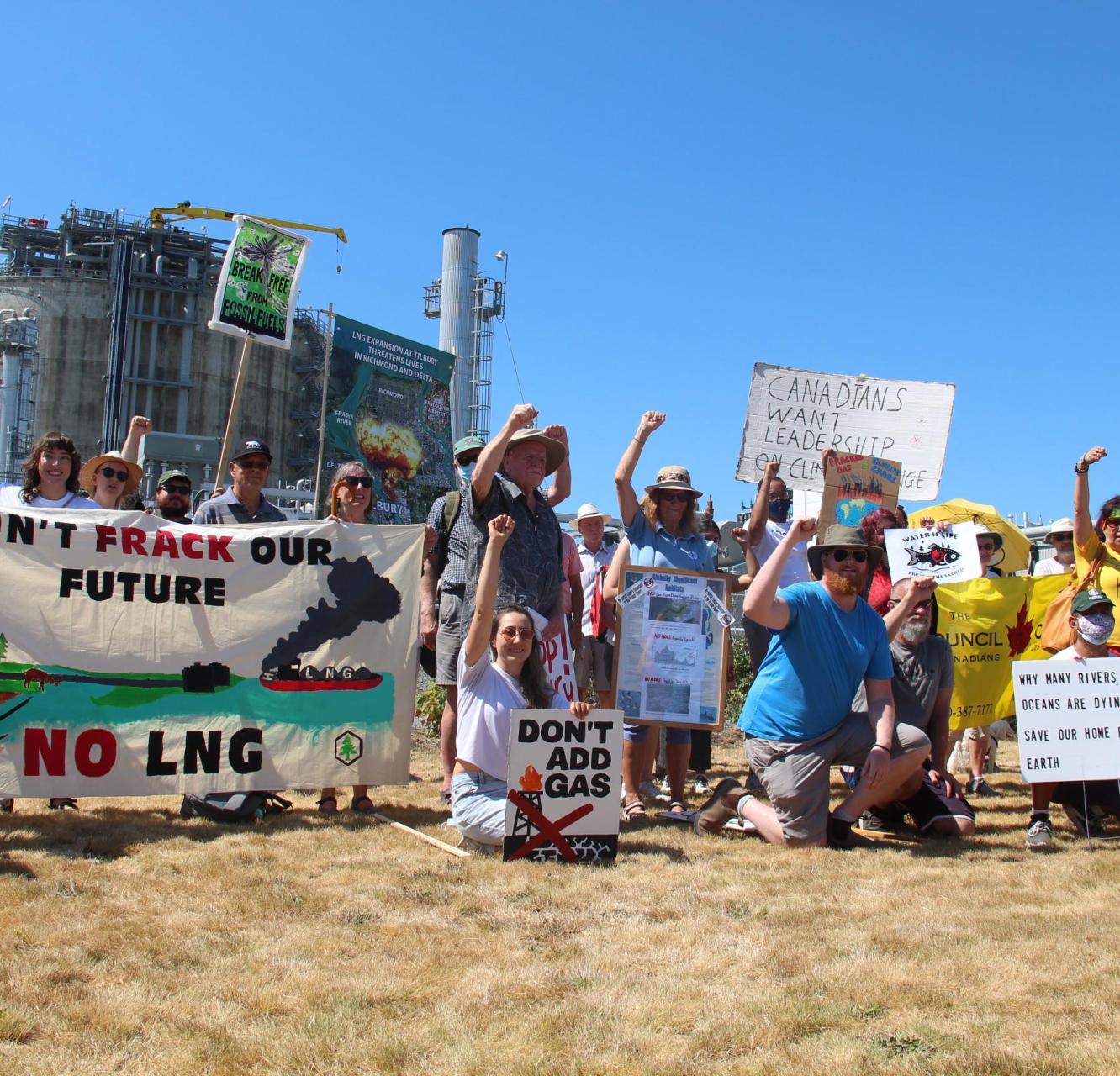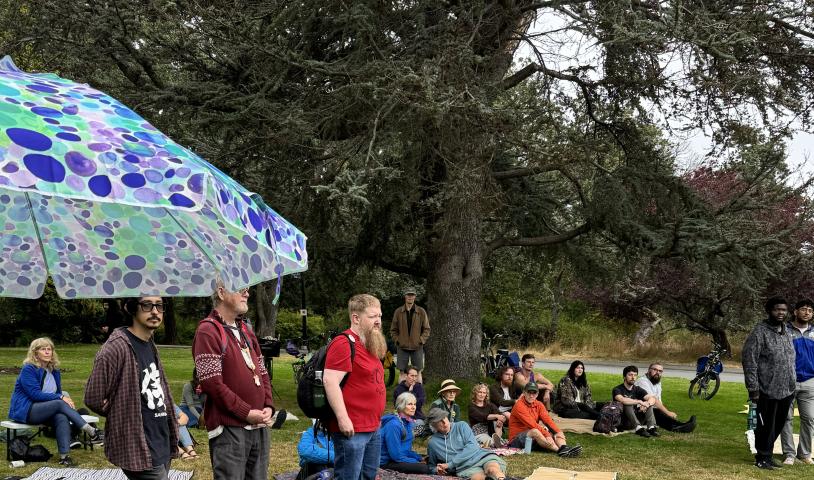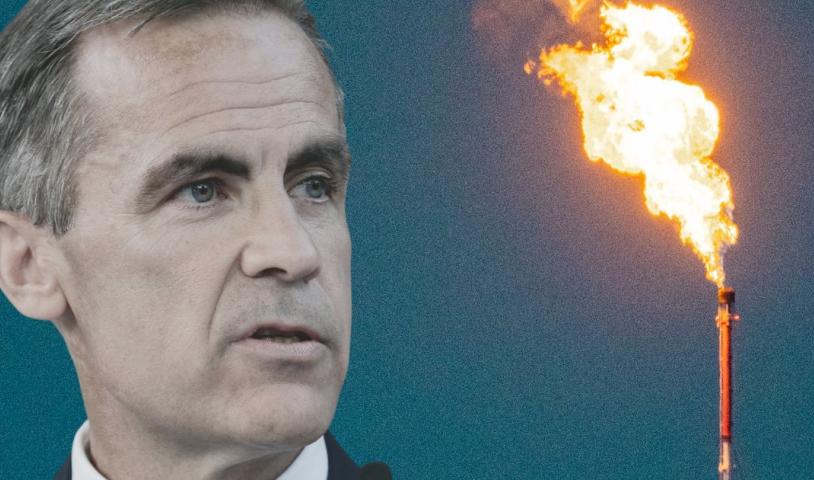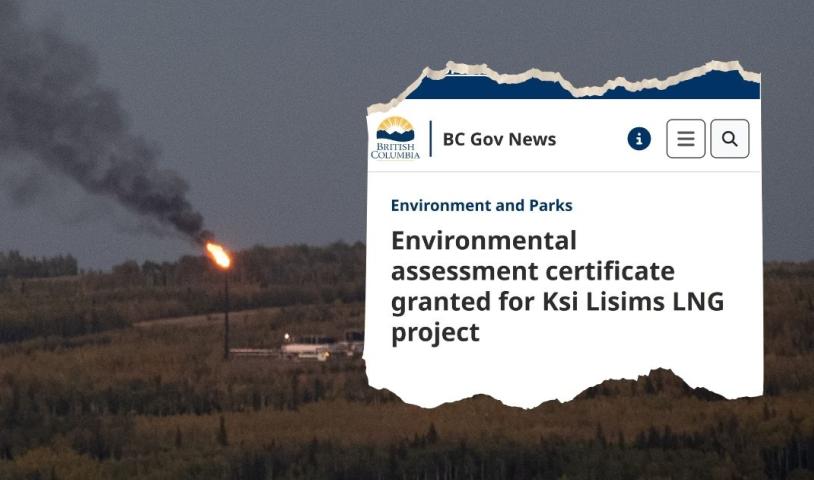CEAA comments reveal fault lines over LNG project
Monday, March 14, 2016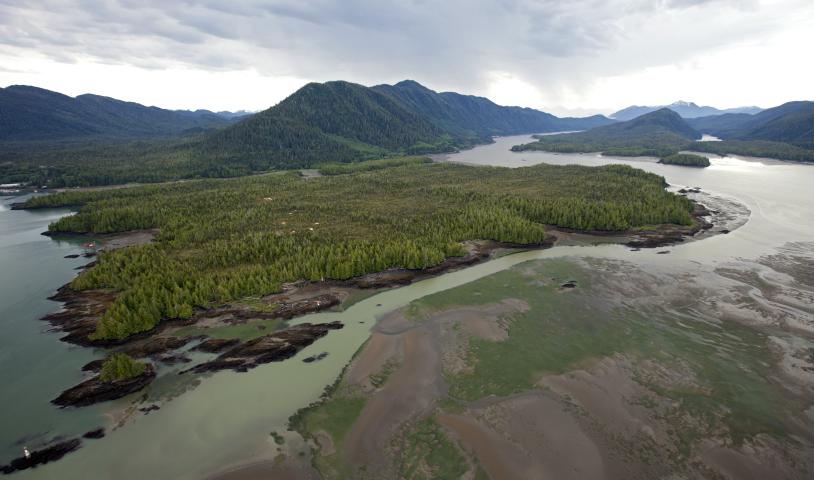
Canada's environmental regulator is continuing to wade through nearly 30,000 comments submitted on the proposed Pacific NorthWest LNG plant.
As of Monday, the Canadian Environmental Assessment Agency (CEAA) had uploaded 3,105 comments to its website, with more being posted daily. Public comment on the controversial project's federal environmental assessment closed March 11.
With traditional markets for natural gas drying up, the Petronas-led LNG plant is increasingly seen as a make-or-break project for the Peace Region, where the gas will be sourced.
Comments submitted to the CEAA, however, reveal the deep fault lines that have formed over the project.
At $36 billion, the plant would represent the largest foreign direct investment in Canadian history. But it would be built near marine habitat crucial to Skeena River salmon, and has met with opposition from several First Nations in the area. Last week, 130 scientists signed a letter to environment minister Catherine McKenna claiming the science behind a draft CEAA report on the project is flawed.
Those for and against the project have stepped up their advocacy as government gets closer to a decision whether to approve the plant.
On the coast, First Nations have for months occupied Lelu Island, where the plant would be built. In the Peace, proponents are warming up their big rigs for a truck rally in support of the LNG plant.
Both sides made sure to stuff the ballot box during the CEAA comment period. The CEAA hasn't officially tallied the comments, but groups with an interest in the project have been keeping an eye on the share of pros and cons.
Michael Gurney, manager of communications for the Port of Prince Rupert, said there's a lot of interest in the breakdown of the comments.
"(But) it's not really a vote," he said. "People are trying to raise concerns about specific aspects of the environmental assessment, and that's what's going to be considered."
The Alaska Highway News read through the 100 most-recent submissions Monday to get a sense of support for the project.
Of that sample, 88 were opposed, while 12 were in support.
Those opposed said fracking and greenhouse gas emissions associated with the plant weren't worth the environmental risk.
The CEAA noted the project would lead to a "marked increase" in greenhouse gases, adding around 8.5 per cent to B.C.'s total emissions. Some argue this would make it impossible for the federal government to meet its climate change commitments. However, proponents argue the plant will be a net benefit for the climate if natural gas goes to offset coal, which creates more emissions when burned.
Groups arguing in favour in the sample analyzed by Alaska Highway News include the think tank Resource Works, the Independent Contractors and Business Association (ICBA) and a hotel chain with a location in Fort St. John, as well as a Conservative Senator and two Alberta MPs.
Many of the anti-LNG responses, meanwhile, were submitted via the Wilderness Committee.
Several pro-LNG submissions came from Fort St. John residents, including Julie Ziebart, a partner at MNP LLP.
She wrote that without new export markets for gas drilled by Progress Energy—the largest driller in B.C.—businesses like hers will suffer.
"Without Pacific NorthWest LNG, Progress Energy's drilling activity would slow significantly and that would negatively impact many businesses like ours," she wrote.
Photo: Lelu Island (Brian Huntington)
